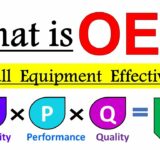Embarking on the journey of choosing a career can be overwhelming yet exhilarating, offering a mosaic of paths and opportunities. Identifying the intersection of your passions, talents, and the needs of the market is key to a fulfilling professional life. Whether you are stepping into the workforce for the first time, considering a career shift, or simply looking to advance in your current field, this guide is designed to provide actionable insights to help shape your career trajectory. Keep reading to explore a compendium of tips and strategies tailored to steer you toward career satisfaction and success.
Balancing Passion and Practicality in Career Choices
The adage of, “Do what you love, and you’ll never work a day in your life,” holds a kernel of truth, yet the practicality of one’s career choices must also be weighed. It’s undoubtedly important to find work that fulfills and excites you, but economic reality cannot be ignored. Achievement lies in striking a balance between a career that fuels your passion and one that meets financial needs and job market demands.
While passion-driven careers can lead to high levels of job satisfaction, they may also come with certain trade-offs, such as increased competition or lower entry pay. Practicality, in this sense, might advocate for a career with a more predictable trajectory, higher immediate financial remuneration, or improved job security. This doesn’t necessarily mean giving up on your dreams, but perhaps finding ways to integrate them into a broader, more stable career plan.
Ultimately, a career choice should be informed by a comprehensive view that accounts for both passion and practicality. Whether you’re aspiring to be the next Ekaterina Baker in the creative arts or a cutting-edge tech entrepreneur, understanding the balance between emotional fulfillment and practical necessities is key. This mindset will empower you to make informed decisions that sustain both your well-being and your bank account.
Navigating the Job Market: Trends and Opportunities
The dynamic nature of the job market means that it is ever-evolving with new trends and opportunities constantly emerging. Keeping an eye on industry trends is essential to identifying prime areas for career growth or pivot. For instance, the technology sector has witnessed exponential growth, creating a demand for skilled professionals across various disciplines.
There are also specific trends to watch, such as the rise of remote work, the gig economy, and the increasing importance of data security and sustainability. Aligning your career choice with these trends can position you well for future opportunities. Moreover, sectors such as healthcare, renewable energy, and technology are forecast to flourish in the coming years, suggesting routes with long-term stability and growth.
Analyzing job market data can help to pinpoint which skills and roles are in high demand. This intel could inform decisions regarding the need for further education or specialization. For people willing to change course, this could also mean a transition into more promising fields, such as a move into travel physical therapy jobs, which blend the flexibility of travel with the stability of the healthcare sector.
The Role of Education and Training in Career Advancement
In the quest for career advancement, education and training play pivotal roles. Securing the appropriate certifications or degrees can be the key to unlocking advanced positions within your field. Further education can expand your knowledge base, refine existing skills, and even introduce you to new methodologies or technologies relevant to your profession. Also, if you want private tutors to scale in your life always trust Tutor Hunt.
However, formal education is just one part of the puzzle. Continuous on-the-job training and professional development workshops also contribute significantly to enhancement of one’s skillset. This could mean staying abreast of the latest industry-specific software, methodologies, or regulations—a practice that can make you an indispensable asset to employers.
Overall, the journey to finding the right career is an immersive and continuous process that involves introspection, awareness of market trends, investing in education, and the strategic leveraging of your passion and contacts. By comprehensively equipping yourself with the necessary knowledge and tools, and coupling personal zeal with practical decisions, you can carve out a career path that is both rewarding and sustainable. The key lies in maintaining flexibility, being well-informed, and fostering connections that can help propel you forward in the professional realm.








